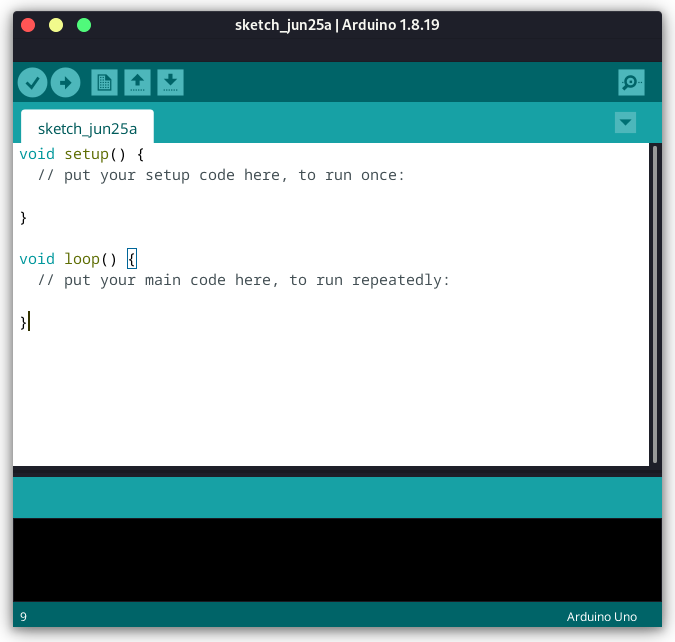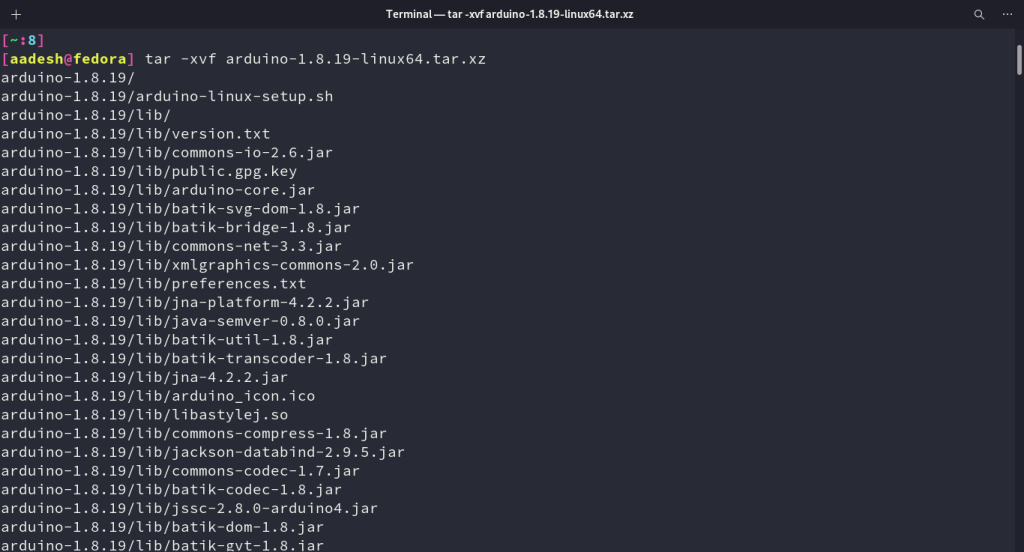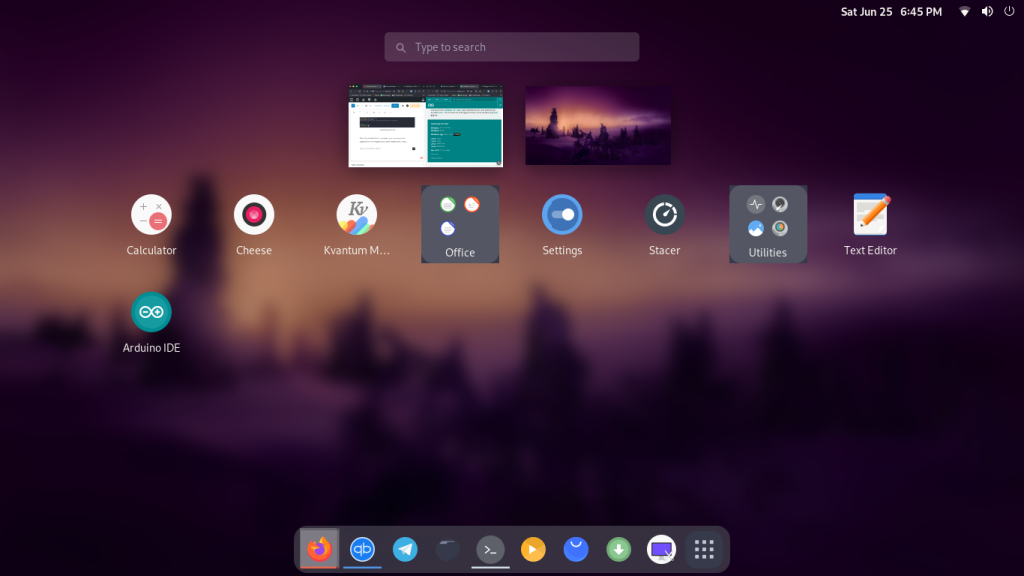Arduino is an open-source, widely used programmable electronic device which can be used for numerous purposes because it is programmable and supports multiple input and output devices. It consists of two parts, one is the hardware board and other is the software (Integrated Development Environment) which is used to writing and uploading the programs to the board.

In this article, we will take a look at the installation procedure of this application on all the major Linux Distributions.
Installing Arduino IDE
Go to the official website of the application and download the Linux tar.gz file depending upon your system architecture (32 bits, 64 bits or ARM). You can also download this directly via the terminal, as of the date when this article is written, the latest version is 1.8.19, however it can be different for you in the future. Open a Terminal and type :
wget https://downloads.arduino.cc/arduino-1.8.19-linux64.tar.xz

Now, extract the package using tar command like this:
tar -xvf arduino-1.8.19-linux64.tar.xz

After the extraction is complete, navigate to the newly created directory and run the installation script by typing:
cd arduino-1.8.19/
sudo ./install.sh

Once the installation is complete, you can launch the application from the Applications grid/ Applications menu.

Uninstalling the application
The removal process is very easy, you just have to run the uninstall.sh script located in the same directory with admin privileges. In the Terminal, type:
cd ~/arduino-1.8.19/
sudo ./uninstall.sh

Summary
If you have a stable internet connection, you can simply use the web editor from your browser. It will be helpful to you because it can automatically save your work in the cloud, and you can access it from any device. Although the choice between online and offline is up to you.
